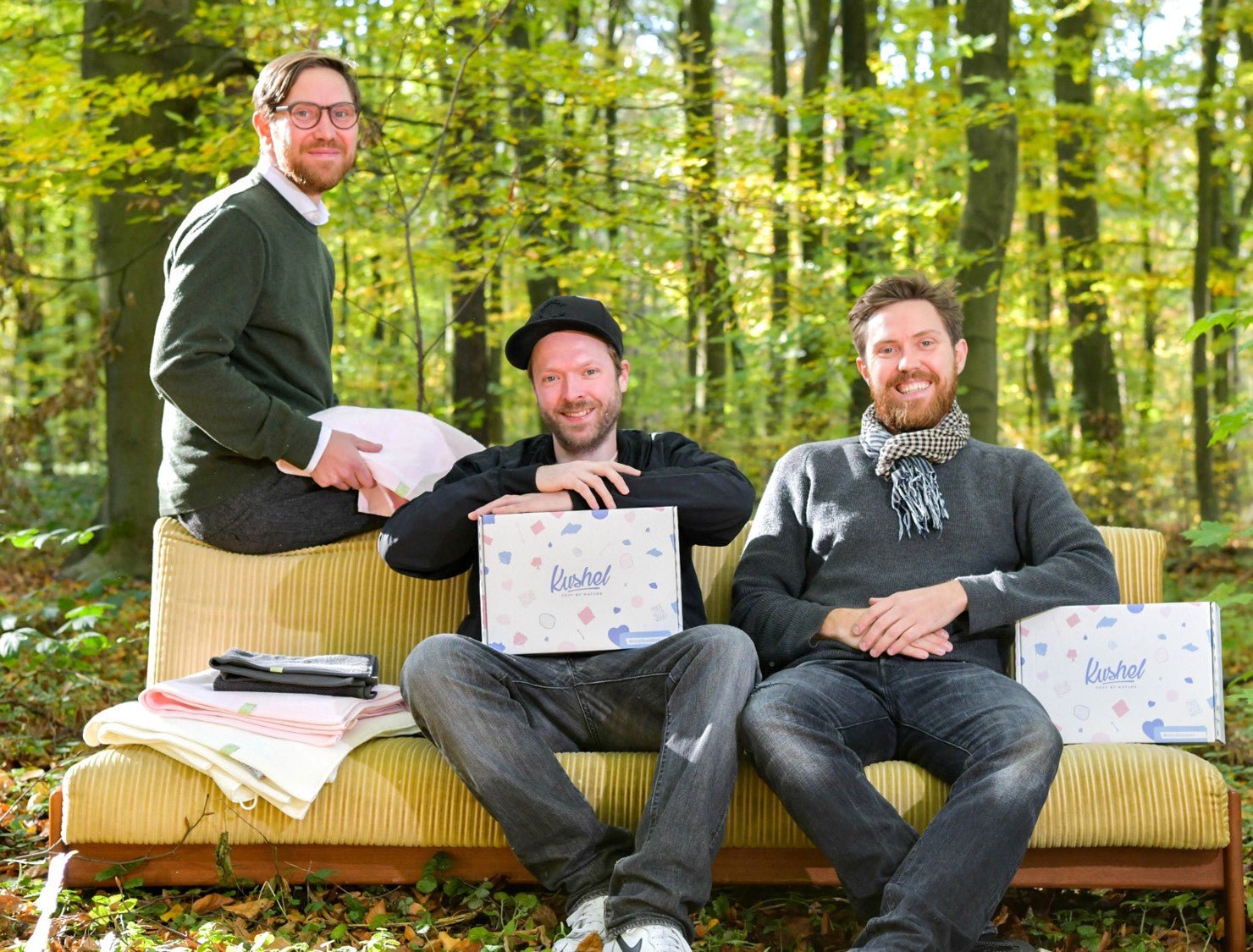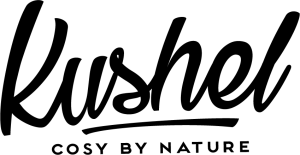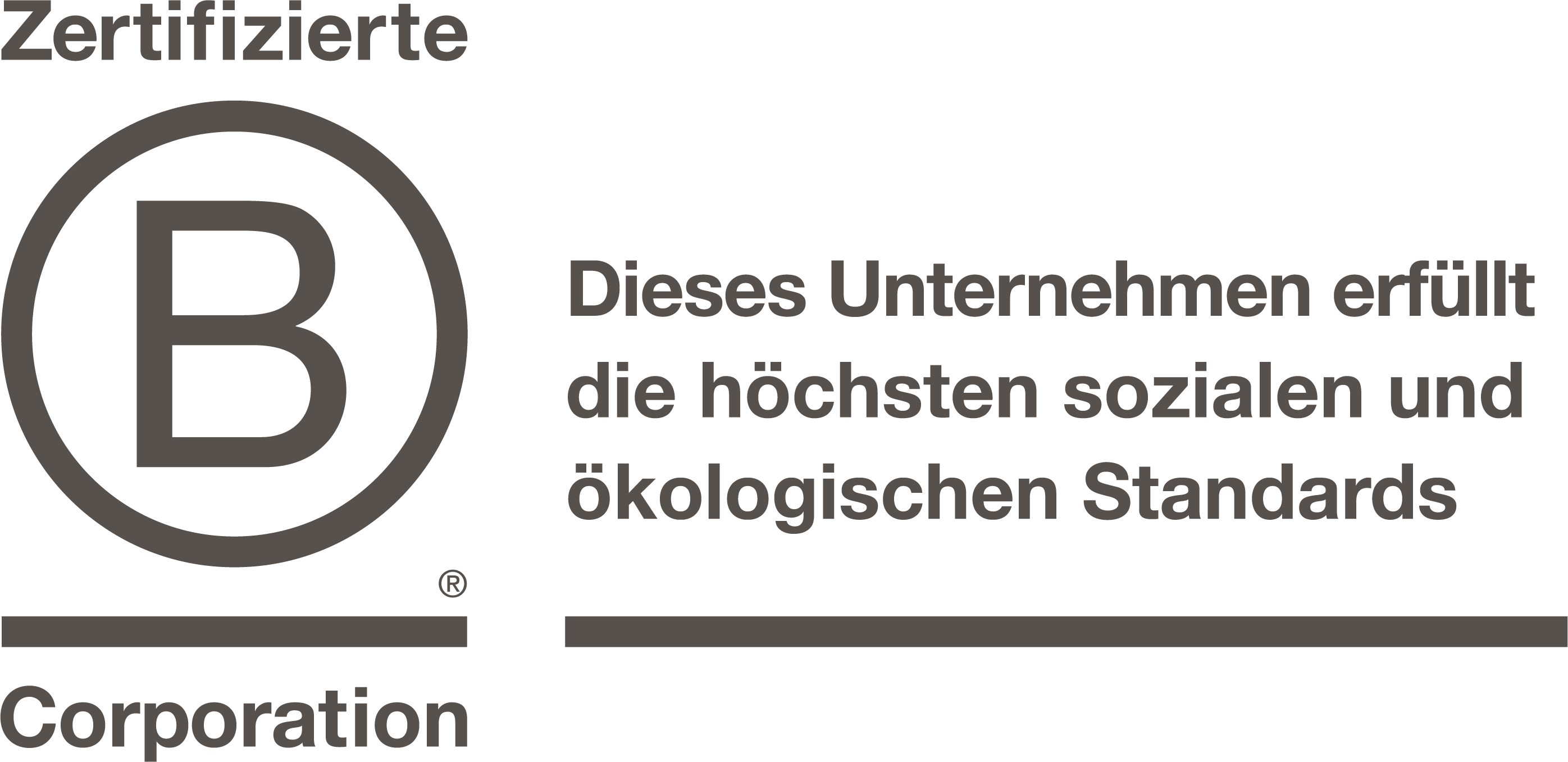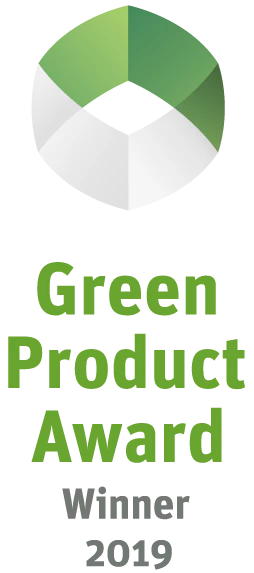
Kushel: A towel to fight climate change
The production of textiles affects our planet - so far, mostly in a negative sense. We change this: we enable our customers to do something good for the environment and at the same time for themselves.
According to one study, apparel and footwear manufacturers account for 5 to 10 percent of global environmental pollution. The share of this industry accounts for around 8 percent of the world's climate-damaging emissions (2016).
On the other hand, there are more and more people who want to slow down climate change but do not want to compromise on quality in their consumption behavior. For these people, we have developed the Kushel Towel, the world's first climate, and resource-positive textile product.

By purchasing our products, the customer provides our planet with more resources than were taken for production. Together with our customers, we provide active environmental protection and solve some of the problems caused by the rapid exploitation of our planet.
The idea is deliberately openly designed: we set the trend in the industry and inspire other companies to develop climate-positive and resource-positive products.
More than 500 supporters have funded the Kushel towel through crowdfunding, we have now shipped more than 1,300 orders and received many 5-star reviews. The Kushel towel was awarded the European Innovation Award Green Product Award in 2019 (Category Bathroom). The positive feedback from our customers and the professional audience motivates us enormously.

How does the purchase of a towel positively impact the climate and the planet?
The goal is to give more resources to nature than we took for production. We achieve this through 3 steps:
1. Minimal environmental impact
We only process environmentally friendly fibers (TENCEL Modal and organic cotton) for the Kushel products and produce energy-efficient and fair in Europe.
2. Create climate and water neutrality
First, we determine the CO2 emissions and freshwater consumption of production and logistics. We then finance projects that compensate for CO2 emissions and generate freshwater.
3. Create new resources for our planet
For each Kushel Towel we produce, we will plant two new trees.
The towel is made climate and water neutral (1,2).
The trees create a positive effect from the day of planting, which increases over time (3). Trees cleanse our air. They deprive the atmosphere of up to 5kg of carbon dioxide (CO2) and produce up to 130 kilograms of oxygen per year. Afforestation creates new forests, and leaf-fall creates new resources called green manure. Thanks to the roots, the forest floor is protected against erosion, and the shade of the treetops creates a pleasantly cool climate.
How do we calculate the environmental impact of a towel?
Calculating the environmental impact of producing a towel is not trivial. We focus on energy consumption and the associated CO2 emissions, as well as the consumption of freshwater. Our auditor, Klimapatenschaft GmbH, uses the MSI Higgs Index and the data of our partners as a database.
The MSI Higgs Index collects various scientific publications on the environmental impact of the production of fibers, e.g., conventional cotton, organic cotton, and modal beechwood fibers. Creator of the index is the SAC (Sustainable Apparel Coalition), to which industrial fiber manufacturers such as LENZING or even brands like Patagonia and NGOs like the WWF contribute their data.
The naturally renewable resources used for the production of the towel (beechwood, the perennial fruit of cotton, as well as the freely available sunlight and rainwater) are not included in consideration of the environmental impact, but only the harmful CO2 emissions and the use of the scarce resource "freshwater" in the calculation.
As the environmental impacts of industrial textile production are multi-dimensional, and we work with manufacturer or index values, our auditor considers a safety margin of 20% for both factors (CO2 emissions and freshwater consumption).
We produce fair textiles from sustainable raw materials. Thus, we avoid unfair pay, lack of health and safety and social problems due to the enormous use of water in textile production.

Why is our raw material particularly environmentally friendly?
The raw materials for our towel are organic cotton and the beechwood fiber TENCEL™ Modal. Both fibers are particularly environmentally friendly compared to their conventional variants cotton and generic modal from Asia.
Organic cotton cultivation is a system whose aim is to maintain a balance of soils naturally. Chemical substances such as pesticides, herbicides or artificial fertilizers, as well as genetically modified high-performance grades, which are commonly used in conventional cotton cultivation, are not allowed for organic farming. Sustainable methods such as alternating crop rotation and organic fertilization are at the center of controlled organic cotton cultivation.
We chose organic cotton from the Aegis region in Turkey because of its proximity to the Mediterranean Sea, where there is a coastal climate with lots of rainfall and less irrigation than in other parts of the world.
For our project, only organic cotton is processed according to the GOT standard, which is watered with the help of drip irrigation. This irrigation technology from viticulture is significantly more efficient than the flooding of cotton fields with groundwater, as is common in other regions of the world. Our supplier claims only 5,500 liters of water for the cultivation of a ton of organic cotton, which is very little.
The Soil Association published a study entitled "Cool Cotton - organic cotton and the climate change" in September 2015 in the run-up to the UN Climate Change Conference in Paris. The study identifies a savings potential of 91% for water consumption and 60% for energy consumption through the cultivation of organic cotton compared to conventionally grown cotton.
We combine the organic cotton with TENCEL™ Modal fibers, a soft viscose made of 100% reforested beechwood from Austria and the surrounding countryside. We work together with LENZING, the world-renowned specialist for environmentally friendly viscose fibers. TENCEL™ Modal is in the MSI Higgs Index for five times more resource-efficient than generic modal from Asia or the USA due to heat recovery and chemical recycling technology. The LENZING company operates through its biomass power plant climate-neutral and clears all accumulated wastewater of the fiber production on-site in their plants.
Compared to a towel made of conventional cotton, we save a total of 98% of freshwater and 44% of CO2 emissions in material procurement through our environmentally friendly material mix.

Why is our production so efficient?
Experts make the Kushel towel on modern weaving machines in Portugal. Producing in Portugal is more expensive than, for example, in Turkey or Asia, but usually also more environmentally friendly.
The share of renewable energies in the Portuguese grid is particularly high, and our manufacturer also receives 17% of his energy needs from the company's solar system.
In Portugal, energy and water are consumed by efficiently operated spinning machines, looms and washing machines. We asked our partner in Portugal about their water and electricity consumption for the Kushel towel. Our auditor, Klimapatenschaft GmbH, converted the energy consumption into CO2 emissions (DEFRA).
To determine the environmental impact of logistics, we have calculated the distance of the production sites, the weight, and the transport route.
Download: CO2 and Blue-Water Product-Footprint: Towel "Kushel"

What is the environmental impact of a Kushel towel?
The environmental impact of producing the Kushel Towel is very low compared to a conventional towel.
A bath towel with the size 70 x 142 cm corresponds to around one square meter of towel. The Kushel towels weight 600 grams per square meter. Based on the weight of the towel, the environmental impact is 4.78 kg CO2 and 60.27 liters of fresh water for the production of one Kushel shower towel.
Note: in an earlier version of the calculation, we calculated values only from the Higgs Index for organic cotton and resulted in 7.54 kg of CO2 and 145.08 liters of fresh water.
We will regularly update our calculations in the blog and verify the manufacturer's information by site visits.

How does the Kushel Towel create a positive effect on our planet?
We offset the (low) emissions of our production by financing compensatory projects and additionally plant two trees for each towel.
The climate-positive effect of trees is not easy to calculate, but it has an impact from the first minute a tree has been planted. Trees cleanse our air. They deprive the atmosphere of up to 5kg of carbon dioxide (CO2) and produce up to 130 kilograms of oxygen per year.
However, there is a possibility that a tree will not grow or be uprooted by a storm. Certain varieties grow more prolonged than others, and some species store more CO2 than others.
Due to the difficulties in calculating the climate-positive effect of planting a tree, we offset the emissions we cause with climate certificates that comply with the Gold Standard. We are financing a wind farm project (GS 854), which will be completed and replace a coal power plant in Turkey. The Gold Standard is the highest quality standard for emission compensation projects.
In addition to avoiding CO2, projects according to the Gold Standard also contribute to sustainable ecological and social development in the project environment. The Gold Standard was developed under the patronage of the WWF and with the participation of the Federal Environment Ministry.
A challenge for us was to compensate for the consumption of freshwater. There are very few projects that "produce" mineralized clean water. We looked at different Raincatcher systems and also checked stewardships for natural sources. The problem with these kinds of projects is, they do not produce freshwater, but sometimes collect more, sometimes less rainwater or protect existing freshwater.
A tricky problem: How do we find a project that purportedly produces mineralized fresh water to make up for the consumption of our towel production?
We found the solution to our problem by planting 10,000 trees in a nature reserve near Hamburg. A forest of monoculture of spruce is restructured with the planting of beech trees to a mixed forest. In addition to improved biodiversity, the new mixed forest profile of treetops and roots ensures that more rainwater is filtered to mineralized groundwater.
The positive freshwater effect of such a forest restructuring was scientifically studied by Prof. Dr. med. Steffen Rust, Professor of Tree Care and Tree Control at the Faculty of Resource Management, Göttingen.
With the planting of the 10,000 trees, we can understandably produce two million liters of freshwater per year. The newly created mixed forest is part of a German nature reserve, and the foresters guarantee a lifespan of trees of at least 50 years.
We compensate for the water consumption of our production by financing a mixed forest restructuring in Germany, a scientifically studied project.
Our vision is planting 1 million trees and creating more positive products
With our partners Klimapatenschaft Pflanzaktion (Germany), Trees for the Future (Africa) and Plant for the Planet (Mexico) we plan to plant a total 1 million trees by 2025.
We will bring more products to market, hoping to inspire other companies to develop climate and resource-positive products.
Read more about our tree partner here.




